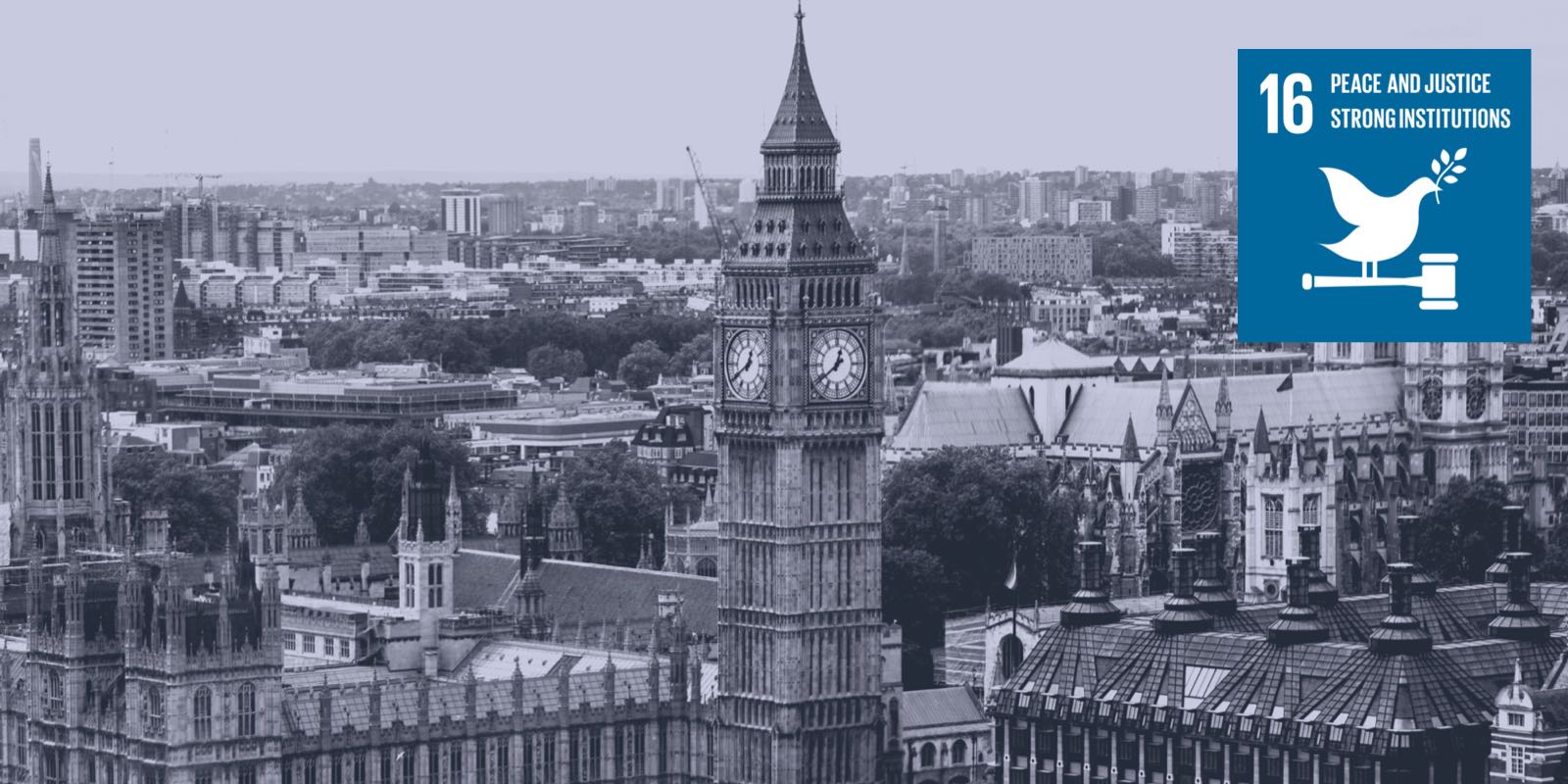Securing peace, justice and effective institutions in the future rests on us taking action now
The global effort to implement the Sustainable Development Goals (SDGs) is an opportunity to positively transform our societies and the lives of everyone on this planet by 2030.
That is why SDG16 on peace, justice and effective, accountable and inclusive institutions is so important. Without it, none of the other SDGs will work. Making SDG16 a success means we can work towards reducing poverty, protecting the environment, tackling climate change, reducing inequalities, and improving city and rural lives. It won’t be possible to tackle these issues head on if corrupt people are in power, if our societies are full of violence, or if people’s fundamental freedoms are constantly violated.
In the UK, we often see ourselves at global leaders on addressing these issues, but we cannot afford to be complacent.
The chapter on SDG16 for the UKSSD’s recently launched report Measuring Up clearly outlines the need for UK-wide action, now.
Tackling violence, reducing crime and ensuring justice
In the UK, reporting of violent crimes, including sexual violence and hate crimes have been on the rise in the last couple of years. Since the start of this year, Londoners have seen a surge in knife crime taking the lives of over 50 people in the capital. The terrorist attacks in London and Manchester in 2017, killing over 30 people, also speak to a society that may be struggling to maintain peace. And more broadly, the rise of the #MeToo movement has put a spotlight on pervasive sexual violence in UK society.
Building institutional resilience against corruption
There are numerous loopholes that enable potentially-corrupt activity to take place in local government, prisons and politics in the UK. It feels difficult to justify for example, the fact that over 100 London councillors have links to the property industry, in a city with such an acute housing problem. Coupled with evidence that the UK financial system allows illicit financial flows and money laundering to occur, it is worrying that suspicious wealth has bought at least £4.4 billion of property in the UK.
Ensuring better governance to protect fundamental freedoms
The targets on governance under SDG16 are integral to numerous others, particularly Goals 1, 5, 10, 11, 16 and 17. But far too often the UK government finds itself reacting to avoidable events instead of getting to grips with the agenda and governing effectively. From something as everyday as ensuring the trains run on time, to crises which place a spotlight on inhumanity, such as the scandal of the Windrush Generation or the loss of 72 lives at Grenfell.
Making SDG16 a reality in the UK
We need a UK-wide agenda that specifically ensures peace, justice and effective, accountable and inclusive institutions in line with the SDGs. The National Performance Framework in Scotland and the Wellbeing of Future Generations Act in Wales already include measures to report and track progress on them.
On the global stage, the UK is often seen as a bastion of democracy with high standards in public life. We should not forget what the UK has collectively achieved over the years, but the examples above serve to spur us on to improve our society.
To build a prosperous future, and one that is peaceful, just and protects our freedoms, the UK must to set an agenda with clear objectives and milestones. The implementation of the Goals needs the collaborative efforts of a broad spectrum of partners and stakeholders including government, citizens, civil society and business. We cannot let the Sustainable Development Goals remain on paper, we must take action.
This article was originally published on the UKSSD website.
